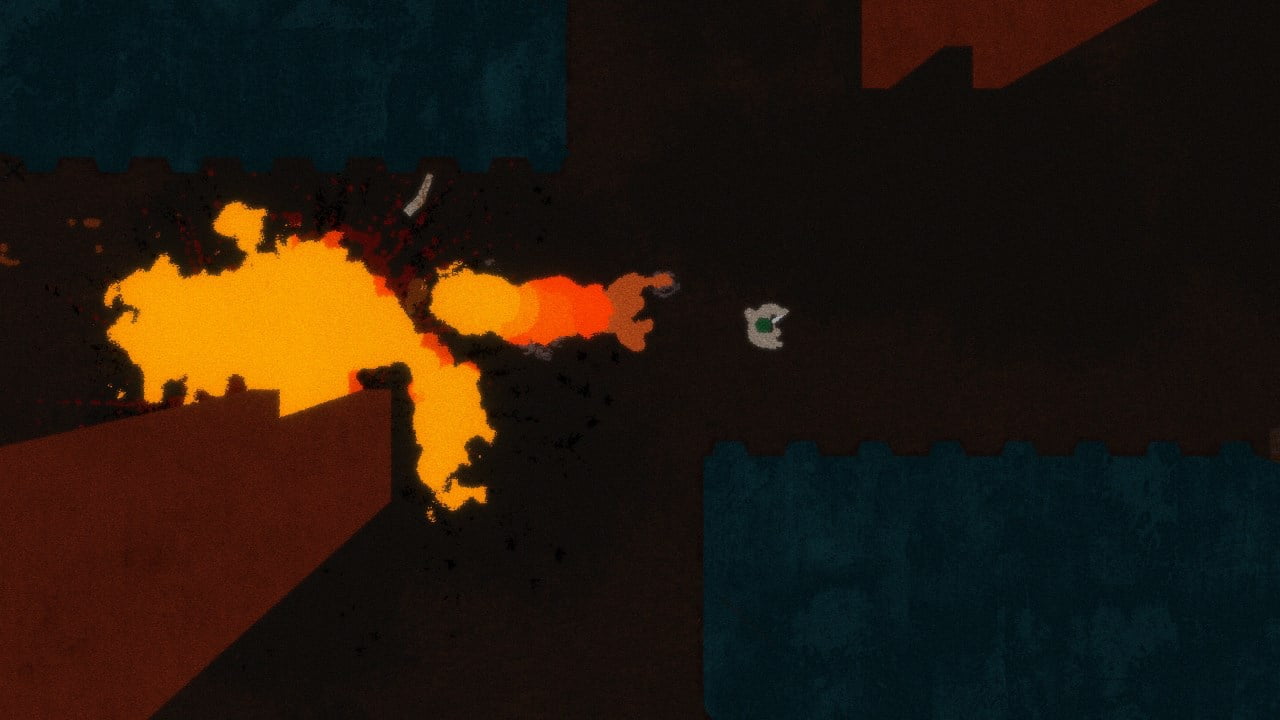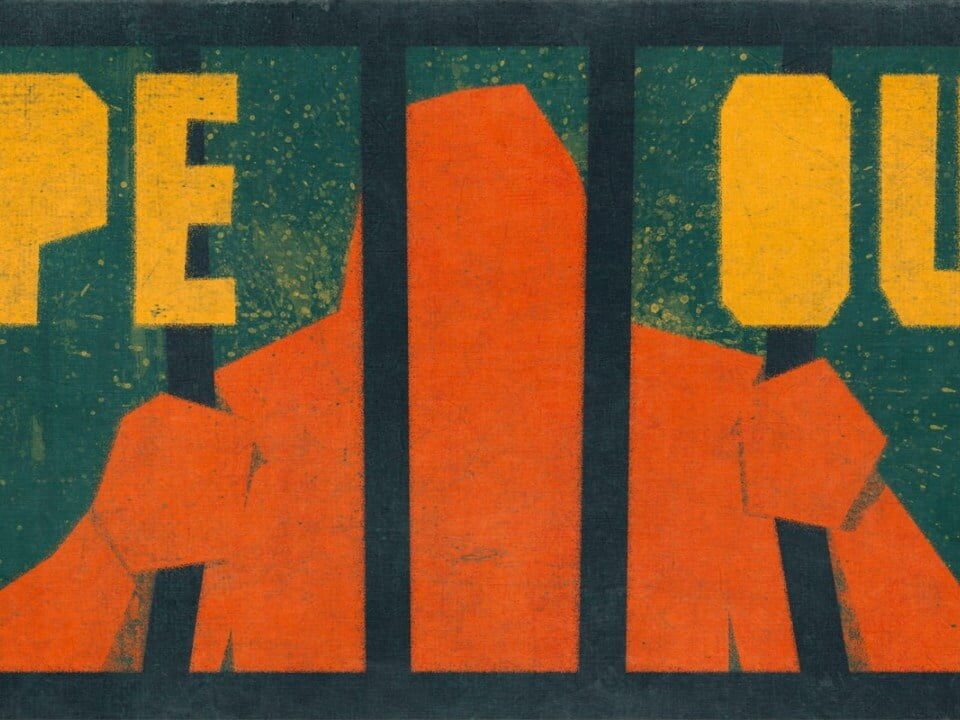I saw another games journo describe Ape Out as “an album with a game attached” and I can see why they came to that conclusion. They’re dead wrong, but it’s easy to see why someone may think that.
Ape Out’s powerful jazz drumming score is combined with very deliberate presentation choices. The game’s worlds are albums, split into two sides of (roughly) four tracks each, represented by Saul Bass-style vinyl sleeve art, with alternate covers to represent different difficulties. This is all designed to give the impression of an ape-themed, avant-garde jazz record collection.

The difference is that if you presented me with a machine gun, staccato, tempo-wandering jazz drumming album, I’d struggle to listen to it. I certainly wouldn’t enjoy it. That would be unbearable in isolation. Present me with that jazz score set along to some perfectly-pitched moving pictures, however, like the soundtracks to The Thomas Crown Affair, Bullitt, or The Hustler – or 2014’s Whiplash, if you’re looking for a modern reference – then it’s a special kind of sorcery.
Ape Out builds upon this remarkable, ratatat riffing by procedurally generating it on the fly, perfectly in time with (and often sourced from) the on-screen action.
While stationary, sticks rattle skins, a simple paradiddle or roll waits, on the cusp of a build. Waits for something to happen. Waits. Then you smash through a cage door with a cacophonous crack and the drumming – and the game – is underway. Panicked guards cock shotguns and loose raps of fire. Then you, a huge, orange ape, grab a guard with enormous arms and thrust them away. A cymbal crashes and the guard crashes, too, splattering against a wall into a mist of blood and body parts.
The next corridor is busier, and instead of flinging every guard you see, you wrap your arms around one’s neck and use them as a human shield. They soak up bullets and fire off their own weapon, taking down several other guards in the spray. Gunshots and snare drums and cymbal splashes rise into a crescendo, then you fling your stricken shield into a group of enemies. They scatter like skittles, with a crash of cymbal for each dead guard, as gunfire and drumfire combine in perfect synchronicity.

It cannot be overstated just how clever the procedural audio in Ape Out is. We’re all familiar with procedural world generation and the sort of emergent scenarios that it can spawn, but the seamless meshing of studio-recorded instruments and clattering sound effects is truly something else. Kudos to NYU’s Matt Boch for his work here. It is remarkable.
This is more than just a smart, stylish, procedurally-generated jazz album, though: there’s a fiendishly-difficult game attached.
Soon, from those simple push me/pull you beginnings, you’ll learn to rip metal doors from their frame and use them as shields from gunfire, or as pig-boards to corral enemies. Later, guards can be thrown out of windows or off the side of buildings or platforms, or into explosive barrels, or squashed by heavy metal doors as you burst from shipping containers.
All the while, your enemies become more organised and more dangerous, with weapons like flamethrowers and rocket launchers increasing the chaos. Guards will run from the titular ape if their fur is on fire, while external factors – like external artillery fired into the stages – make the world dangerous for ape and guard alike.

Ape Out begins feeling like a primate-themed, Pac-Man power fantasy, but quickly grows into a twin-stick bullet-hell.
As with all procedurally-generated games, you might find yourself on the end of some bad rolls. You might need to take several (dozen, hundred) attempts at a stage before you pass it. You might even find you miss the level exit on a few occasions, particularly when the game’s horizontal, left-to-right (or right-to-left) design language is subverted by vertical corridors, staircases, or other changes to the core mechanic.
And Ape Out is difficult enough in its standard mode. When you play again on the harder difficulty, or the time-limited arcade mode, it gets even tougher again. Without any special moves to speak of – or even any regular moves, like strafing or dodge rolls – Ape Out can leave you feeling battered and bruised. Then there’s the frankly sadistic ‘banana’ achievement.
That difficulty will no doubt turn off some players, but what Gabe Cuzzillo, Bennett Foddy, and Matt Boch have achieved with Ape Out is something special. It’s that rare sort of game that treads a fine line between what are often diametrically-opposed ideals.
It’s stylish but substantial. It’s difficult but achievable. And most of all, Ape Out is technically so very clever – to the point where it could be a technical showcase as much as it is a video game – but it is still an absolute riot to play.
Game: Ape Out
Platform: Nintendo Switch (reviewed), PC
Developer: Gabe Cuzzillo
Publisher: Devolver Digital
Release Date: Out Now






